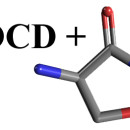Pure-O OCD Rituals: Starting Over, Resetting, & Undoing
Question: It’s hard to describe this, but I feel like every few days I need to mentally “start over” by doing a variety of mental and behavioral rituals. I don’t want to live like this, but I’m afraid that if I undergo treatment and stop my OCD rituals, I won’t be the same person with the same drives. Starting Over, Resetting, & Undoing Compulsions in OCD First, please rest assured that you’re not alone in experiencing these symptoms. Many people with OCD (“Pure-O” or otherwise) refer to them as “starting over” compulsions, “resetting” compulsions, or “undoing” compulsions, which serve the function of returning to a clean mental slate. Sometimes these compulsions consist of particular movements, self-statements, mental activities, or complex rituals with both behavioral and mental components. They are not as common as other types of rituals (e.g., washing,...
Read MoreHealth-Related Anxiety: Symptoms, Disorders, & Treatment
Think about the most significant health scare you have ever experienced. Then multiply this experience by a factor of about 10. Unfortunately, this is a daily reality for many individuals suffering from health-related anxiety, a debilitating condition that can have devastating effects on one’s mood, relationships, and ability to function in academic and professional settings. What is health anxiety? Health-related anxiety is a general term that refers to intense fear or worry about one’s physical health. Fear about illness (or potential illness) might develop in situations in which an individual has a diagnosed medical illness. These health conditions might include: a diagnosed, progressive medical condition (e.g., worry about advancing symptoms of Alzheimer’s disease). a diagnosed medical condition that requires management and/or health behavior changes (e.g., anxiety following a diagnosis of diabetes or after experiencing a heart attack). a diagnosed...
Read MoreFear, Doubt, Uncertainty, ERP, & the Monster Under the Bed
Everyone I know has, at some point, had to deal with the monster under the bed. Some do it with grace. Others falter. I’ve always been clumsy. I can vividly recall many terrified nights from my childhood, when I would lie rigidly in my bed, utterly paralyzed by fear. Afraid to make the slightest movement, to breathe, to call out for my parents…lest I be detected by IT. The pounding of my heart would be so loud in my ears, and my breathing so ragged, that I could swear the entire house could hear me. And yet…no one came to help. The moment would stretch out like taffy. At some point, my raw fear would ever so subtly decline, freeing me up to end the stalemate in one of several ways. Some nights, I would call out for help....
Read MoreMindfulness & ACT-based therapy: Questioning “I hurt; therefore, I suffer.”
Mindfulness & ACT-based Approaches to Therapy Mindfulness & Acceptance and Commitment Therapy (ACT)-based approaches to treatment might (Hayes, Strosahl, & Wilson, 2003) ask you to consider the truth of the following statement: I hurt; therefore, I suffer. Most of us would probably agree that suffering is usually borne out of hurt. But this doesn’t mean that pain, discomfort, or unwanted emotions necessarily lead to suffering. In truth, many hurts do not lead to suffering. Pain and suffering are distinct entities that exist on two entirely different planes. Pain is based on an experience, whereas suffering is based on how we perceive that experience. In many cases, we may not be able to sidestep pain or hurt; however, suffering may be a different matter. Pain Think about the last time you felt physical pain. Maybe you’re feeling it right now....
Read MoreOCD & D-cycloserine: A Promising Medication for OCD Treatment
As someone who has long been enamored with basic science, I find it fascinating when classic medications are re-purposed in surprising ways. One of the newest examples of this is the use of D-cycloserine (also known as Seromycin) in the treatment of obsessive-compulsive disorder (OCD). What’s interesting about D-cycloserine is not so much what it is…but what it isn’t: D-cycloserine is neither an SRRI nor any other type of antidepressant (e.g., Prozac). It’s not an anti-anxiety medication (e.g., Xanax, Klonopin). It’s not even an atypical antipsychotic (e.g., Abilify, Risperdal). If it’s not one of the above, then what is it? The answer might surprise you. Seromycin is actually an antibiotic that was originally developed to help fight off tuberculosis. What’s exciting about using an antibiotic to treat OCD is that it’s not subject to the same side effects as other medications (i.e., the SSRIs,...
Read More







